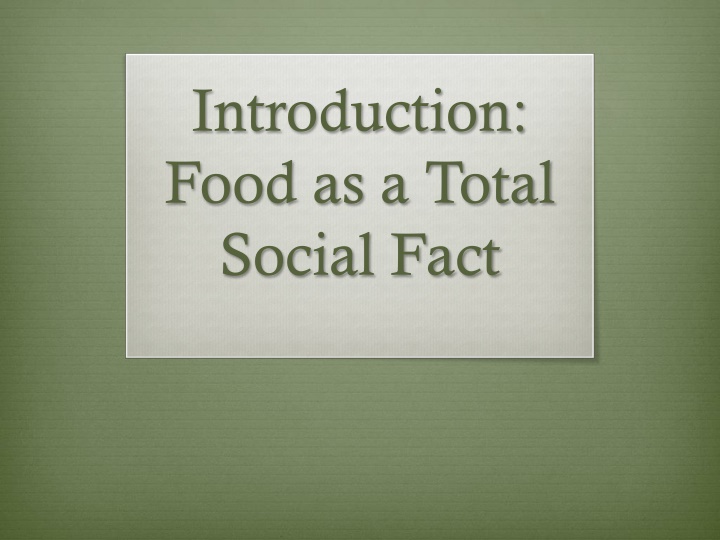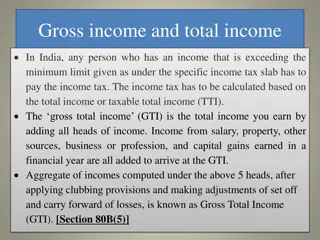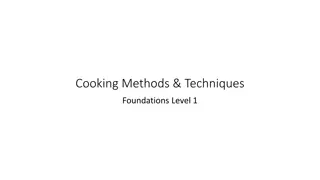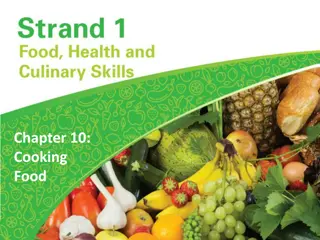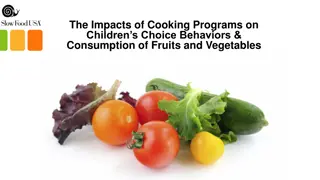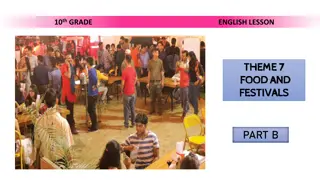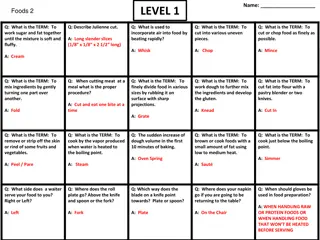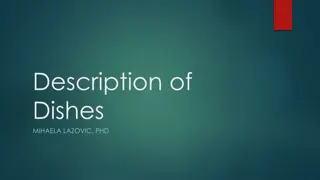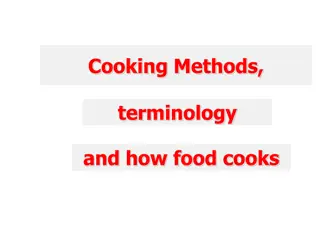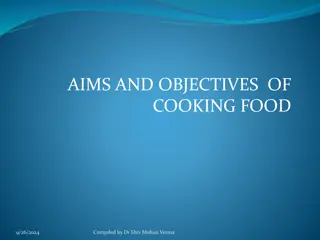Food as a Total Social Fact: Cooking, Evolution, and Cultural Perspectives
Delve into the transformative role of cooking in human evolution, as discussed by Richard Wrangham and the Evo Diet experiment. Explore the cultural significance of food through Claude Lévi-Strauss and Edmund Leach's insights on cooking as a symbol of humanity. Discover the complexities of food preparation, language origins, and gender roles in food culture. Uncover contemporary challenges in food consumption and the importance of nutritious, ethical, and affordable food choices.
Download Presentation

Please find below an Image/Link to download the presentation.
The content on the website is provided AS IS for your information and personal use only. It may not be sold, licensed, or shared on other websites without obtaining consent from the author.If you encounter any issues during the download, it is possible that the publisher has removed the file from their server.
You are allowed to download the files provided on this website for personal or commercial use, subject to the condition that they are used lawfully. All files are the property of their respective owners.
The content on the website is provided AS IS for your information and personal use only. It may not be sold, licensed, or shared on other websites without obtaining consent from the author.
E N D
Presentation Transcript
Introduction: Food as a Total Social Fact
Wranghams Cooking Hypothesis We should indeed pin our humanity on cooks.
Richard Wrangham, Catching Fire: How Cooking Made Us Human (2010) I believe that the transformative moment that gave rise to the genus Homo, one of the great transitions in the history of life, stemmed from the control of fire and the advent of cooked meals. Cooking increased the value of our food. It changed our bodies, our brains, our use of time, and our social lives. It made us into consumers of external energy and thereby created an organism with a new relationship to nature, dependent on fuel.
Evo Diet experiment (2006) http://www.bbc.co.uk/sn/humanbody/truthaboutfood/fl ashapp/flash/index.shtml
Claude Lvi-Strauss Food is both good to eat and good to think [with] In Brazil in the 1930s
Edmund Leach: People do not have to cook their food; they do so for symbolic reasons to show that they are men and not beasts .
Dean Falk, Finding Our Tongues: Mothers, Infants and the Origins of Language (2009). motherese (baby-talk)
1973 study of 185 different cultures around the world: Responsibility for preparing food lay with women in 97.8% of the cultures studied.
why is eating nowadays so troublesome? Alan Warde and Luke Yates, Focus: Food and Eating , Discover Society 36 (6 Sept. 2016)
Food should be . . . . . nutritious, aesthetically appealing, ethically justifiable and affordable. Alan Warde and Luke Yates, Focus: Food and Eating , Discover Society 36 (6 Sept. 2016)
Is food today both too cheap and too expensive? 7% - 15% of household incomes are spent on food in Western European and the US. 20% - 30% spent on food by most of the rest of the world.
Is food today both too cheap and too expensive? Incomes for farmers world-wide have fallen dramatically since 1945. Wealth from food production goes to corporations and manufacturing, not farmers. (Harriet Friedmann, Food Politics: New Dangers, New Possibilities (1995).)
Is food today both too cheap and too expensive? The poorest 20% of British households spend twice as much of their household income on food as the national average. Over 1,000,000 UK households use food banks.
Food is about. . . ? Money profits Pleasure fear Trade commodities Culture history technology community Justice Environment Ethics Health agriculture nutrition
A Total Social Fact an activity that has implications throughout society, in the economic, legal, political, and religious spheres (see Marcel Mauss: fait social total )
